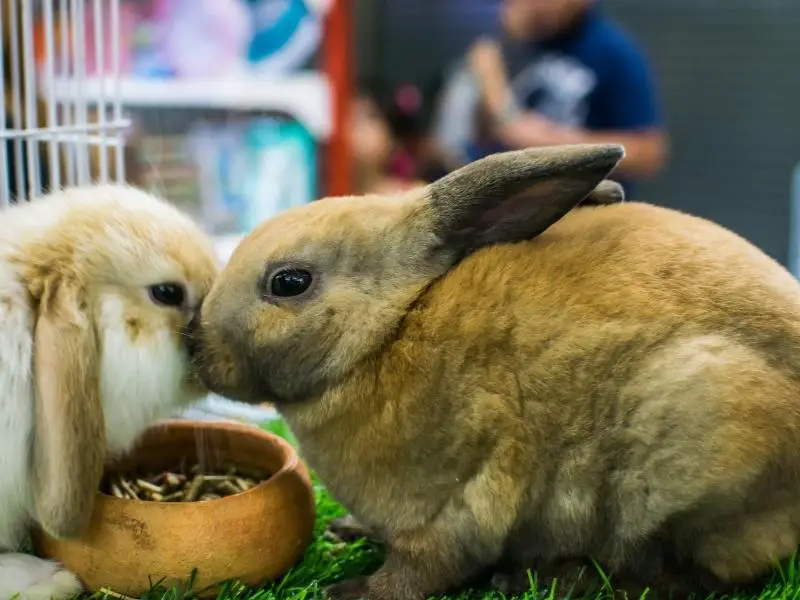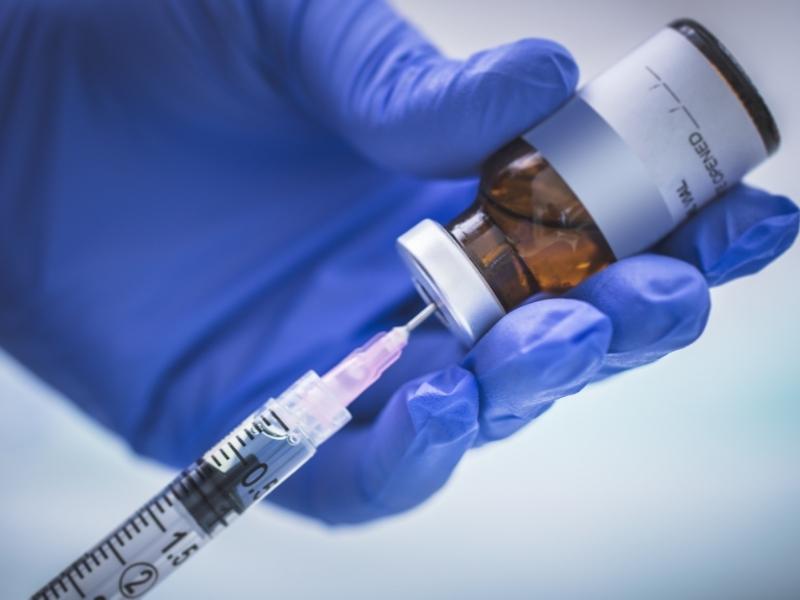People are protected when they get various vaccines, and so too can you vaccinate other pets like dogs and cats. But what about your beloved fluffy-tailed bunny? Can you protect them against various rabbit diseases with a vaccine?
So do rabbits need shots? And if so, what shots can a pet rabbit get?
Whether your rabbit needs to get shots depends on where you live. In the USA, rabbit vaccines aren’t widely available; if there’s an outbreak in your state, you should talk to your vet. If you live in Europe, your rabbit needs to be vaccinated annually against myxomatosis and rabbit hemorrhagic diseases 1 and 2.
If you are curious to learn more about vaccinations for rabbits, read on. We’ve got all the details for you.
Are There Any Vaccines for Rabbits?
There are vaccines for rabbits, but how widely available the shots depend on where you live. There are three vaccines for pet rabbits in Europe, and they need to be given annually to protect your bun from myxomatosis, rabbit hemorrhagic disease 1, and rabbit hemorrhagic disease 2.
In Australia, only one of these vaccines is approved, and if you live in North America, none of these three vaccines are readily available.
The vaccines aren’t made according to CFIA (Canadian Food Inspection Agency) or USDA (United States Department of Agriculture) standards. There is one vaccine for RHD 2 that’s been authorized for emergency use only.
Luckily, these three diseases don’t pose any risk to the public since they aren’t transmittable to other pets or humans. However, there have been reports of RHD affecting wild and domestic rabbits in California, Colorado, Arizona, Texas, New Mexico, and Mexico.
If you do live in an area where myxomatosis or any of the rabbit hemorrhagic diseases are known to spread among the rabbit population, it’s in the best interest of your pet bunny to get them vaccinated annually.
Rabbit Hemorrhagic Disease (RHD or RDHV)
Rabbit hemorrhagic disease is also called viral hemorrhagic disease or rabbit hemorrhagic disease virus (RHDV).
RHDV is a fatal and highly contagious calicivirus or viral hepatitis that’s caused by two different viral strains – RHDV 1 and RHDV 2 – that are related.
The disease was first identified in China in 1984, and from there, it spread to Korea, Italy, and the rest of Europe via the trade in rabbit meat and fur. Reports that RHDV has been detected in Mexico came 4 years after it was reported in China.
RHD affects wild rabbits like cottontails, hares like jackrabbits, wild European rabbits, and pet rabbits.
Symptoms of the viral hemorrhagic disease include:
- Loss of appetite
- Lethargy
- Fever
- Wobbliness
- Seizures
- Jaundice
- Difficulty breathing
- Bleeding from the mouth, nose, rectum, or genital openings
- Sudden death
Transmission of RHD occurs via:
- Direct contact with infected rabbits
- Direct contact with contaminated water, food, or bedding
- Fly and other insect bites
- Exposure to an infected rabbit carcass
A subtype of rabbit hemorrhagic disease called RHDVa was identified in 1996/1997, and cases have been reported in Europe, the Americas, Australia, and Asia.
Rabbit Hemorrhagic Disease 2
Rabbit hemorrhagic disease 2 is similar to RHDV; however, it is another strain of the viral disease. RHD 2 was first detected in France in 2010 in both farmed and wild rabbits. From here, it spread to the Mediterranean basin and Europe.
The symptoms of rabbit hemorrhagic disease 2 are similar to those of RHD 1, but the clinical signs present slower.
Jaundice and chronic weight loss are the most prevalent symptoms of RHD 2.
Myxomatosis
Myxomatosis (myxo) is a deadly biological control virus that was released in Australia and Europe in the 1950s to control the wild rabbit population. The wild cousins have developed some immunity to myxomatosis; however, it is deadly if your pet rabbit gets infected.
Some wild rabbits are carriers of myxo, and it is typically spread from one rabbit to another via direct contact or a mosquito, gnat, fur mite, fly, or flea bite.
If a rabbit contracts chronic myxomatosis, it’ll be dead within a few weeks, and if it’s acute myxomatosis, the rabbit will die in 10 days.
There is no treatment for myxomatosis, and some common symptoms include:
- Nose or eye discharge
- Ulcers
- Lack of appetite
- Swollen eyelids, genitalia, anus, nose, ears, or lips
- Lesions
- Hemorrhaging
When Can Rabbits Be Vaccinated?

If there are vaccines available for your rabbit where you live, it’s recommended to get your buns vaccinated. Even though the vaccine isn’t a 100% chance your rabbit won’t get the disease, it does help them gain immunity.
When your rabbit can get vaccinated depends on the specific vaccine. In general, your rabbit needs to be at least 5 weeks old. For other vaccines, your bun needs to be 10 weeks old.
How to Prevent Diseases in Rabbits
There are a few ways you can help prevent these diseases and others in your pet rabbit:
- Keep your rabbit away from unfamiliar insects and rabbits that may be carrying diseases.
- If you’ve come into contact with other rabbits – wild or domesticated – wash your hands and change your clothes before handling your bun.
- Keep your pet bun inside where there’s less chance of insects biting them and wild rabbits making contact.
- Talk to your vet about flea prevention.
- Keep your rabbit’s cage or hutch and litter area clean.
- Ensure your yard doesn’t attract wild rabbits, and if you find rabbit carcasses on your property, contact your local health department.
- Make sure your guests wash their hands and wear protective clothing before touching or handling your pet rabbit.
What Else Do You Need to Keep Your Rabbit Healthy?
Keeping your pet rabbit healthy also means you feed your rabbit a healthy and balanced diet and take your bun to the vet for regular checkups.
If you want to add another bunny, keep the rabbit separate to ensure it’s healthy before bonding the two buns.
My Last Bunny Thoughts
Keeping and caring for a pet bunny is a lifelong commitment that also means you need to protect your bun against any diseases. If you live in an area where you can vaccinate your rabbit, do so.
But always keep your ears on the ground for outbreaks in your area and contact your vet to enquire about emergency vaccines.

